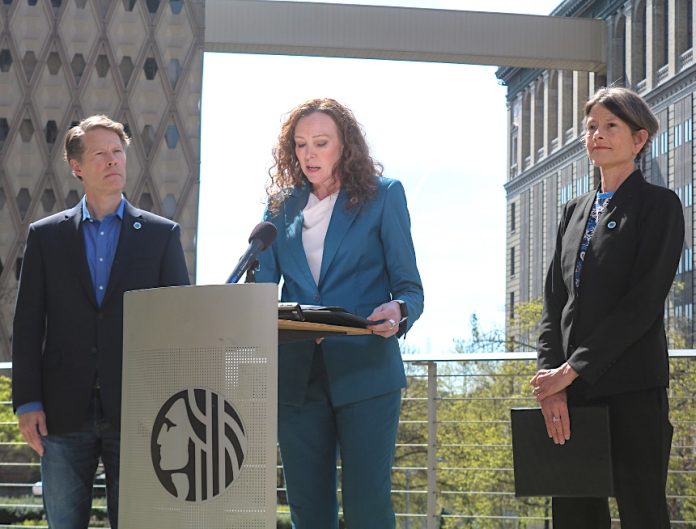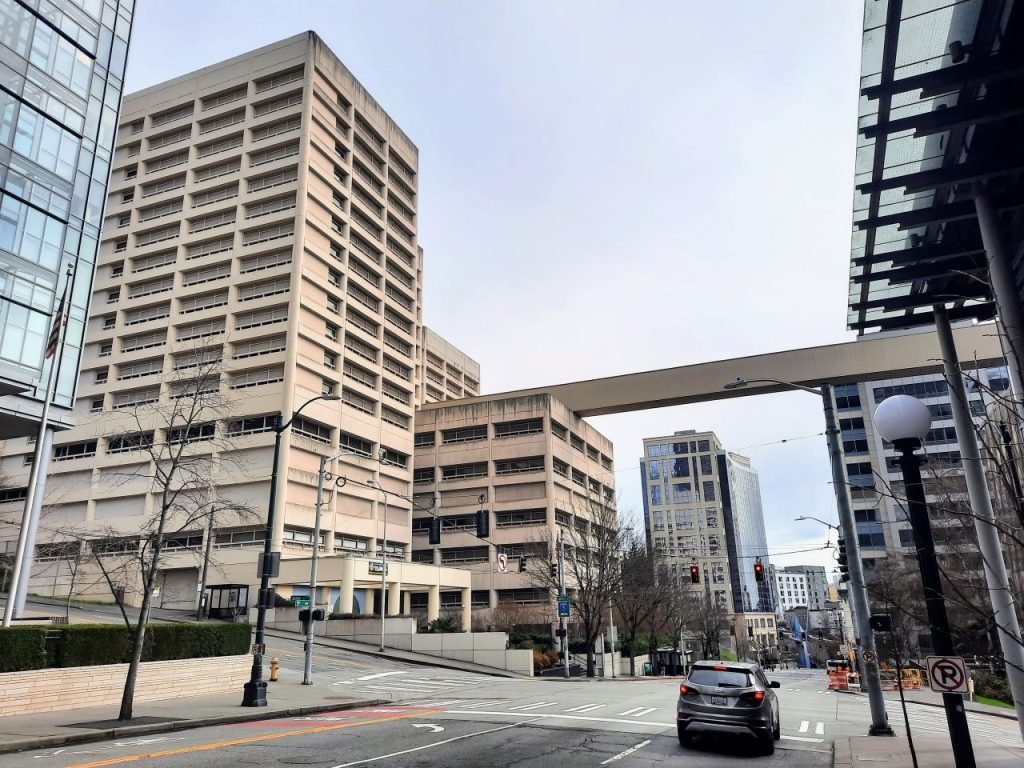
Nothing like a new war on drugs during an election year.
Next week the Seattle City Council will vote on whether to kickstart a new local front on the war on drugs by adopting a law criminalizing simple drug possession and public drug use. Submitted by Councilmembers Sara Nelson and Alex Pedersen, this ordinance would allow the Seattle City Attorney to prosecute these crimes in the Seattle Municipal Court.
Right now drug possession charges are handled by the King County Prosecutor, who in practice hasn’t been pursuing cases involving the possession of small amounts of drugs since 2018.
Why now?
The proposed law is in response to the state legislature’s special session earlier this month. After the Washington Supreme Court’s Blake decision in the winter of 2021 removed the state’s main drug possession law, the legislature adopted a temporary fix, making simple drug possession a misdemeanor until July of this year.
During the special session, lawmakers agreed on a more permanent resolution of the issue, making simple drug possession a gross misdemeanor, although a person’s first two offenses would be capped at 180 days of jail time instead of the usual 364-day limit.
Opponents to this decision argued that criminalization isn’t effective at treating substance abuse disorder nor preventing overdoses. Indeed, the legislature’s own Substance Use Recovery Services Advisory Committee (SURSAC) voted to recommend the decriminalization of simple drug possession in Washington State, saying in their report: “To realize the greatest public health, safety, and social benefit of this recommendation, people will need to be able to access their substance(s) of choice in a form that is as safe as possible to consume (safe supply) and to do so without interference (decriminalization). The resulting system reduces harm associated with drug use, including overdose and incarceration.”
The new state law’s impact on Seattle
The decision to make drug possession a gross misdemeanor has jurisdictional consequences in Seattle, since the Seattle City Attorney’s Office handles only misdemeanors, while both misdemeanors and felonies are prosecuted by the King County Prosecutor’s Office. The ordinance on the table for a City Council vote next week would add the crimes of simple drug possession and public drug use to the City’s municipal code, allowing City Attorney Ann Davison to pursue them herself. If the ordinance were not to pass, the City may have to negotiate with the County to handle these cases, although most cases of simple drug possession are already not prosecuted.
However, if the ordinance were to pass, there would assuredly be budget ramifications for Seattle. SEIU Local 925, the Department of Public Defense’s union, estimates it would cost the City more than $1 million per year just in increased public defense costs; there would be additional costs associated with hiring more prosecutors, support staff, court staff, and increased jail services.
And Seattle doesn’t have much money to spare; April’s budget forecast showed expected revenues from both the Jumpstart tax and real estate excise tax have fallen significantly, in addition to the news that Seattle’s General Fund revenue sources are unlikely to keep pace with inflation for many years to come. Spending resources to criminalize substance abuse disorder takes money away from programs that pursue a public health approach to help people stabilize and recover.
In addition, Seattle doesn’t currently have the infrastructure to prosecute drug crimes. The only drug crimes the City has handled were related to marijuana, a practice that was discontinued in 2003. As a result, in addition to the aforementioned lack of appropriate staffing, Seattle’s existing prosecutors and judges have no experience with drug crimes, nor does the City have a drug court.
In fact, City Attorney Davison announced just last week she has decided the City will no longer participate in its community court, citing several cherry-picked examples to justify the policy move even though 80% of participants in community court never re-offend, a move that is expected to further increase the burden on both the City Attorney’s Office and the Seattle Municipal Court. In contrast, King County already has diversionary programs for drug-related offenses that could be scaled up and more effectively disrupt the cycle of addiction.

This legislation could also impact conditions at the already understaffed King County Jail. Executive Constantine has said the jail is “decrepit and expensive to operate, and its physical layout does not lend itself to behavioral health and other care.” The jail has been dogged by problems in recent years, including an astronomical suicide rate and a month-long lack of potable water.
The implementation of this ordinance would also make it much easier for people who are unhoused and use drugs to receive a large number of police referrals, making them eligible for Seattle’s High Utilizers Initiative, which would make them exempt from booking restrictions. Increasing the population of this jail by criminalizing the drug use of those who are unhoused will not only destabilize this vulnerable population but will also strain the jail’s limited resources even further.
Harms associated with drug criminalization
Opponents of the bill are calling out its potential to further exacerbate racial disparity of arrests, jail time, and overdoses, citing the Seattle Police Department’s already problematic record regarding stops and detentions: Black and Indigenous community members are five to seven times more likely to get stopped and six to seven times more likely to be frisked than white community members. In King County in 2021, Black people were 2.5 times more likely and Indigenous people five times more likely to die of an overdose than White people. Meanwhile, a recent analysis of the King County Jail population showed almost 40% of the inmates were Black, whereas only 7% of King County residents are Black.
The dangers of overdose also increase for those who are incarcerated. Criminal justice reform advocates held an emergency teach-in on this bill held earlier this week, with co-sponsors including the Seattle King County Coalition on Homelessness, ACLU of Washington, Collective Justice, Evergreen Treatment Services, PROTEC 17, REACH, and several more. During the event, Dr. Tom Fitzpatrick from the University of Washington School of Medicine said people who have been arrested and held in jail or prison become at increased risk of death from overdose in the time after they’re released, with one study showing the risk of death by overdose goes up tenfold in the first two weeks post-release. A study done in Washington State from 1999-2003 showed former inmates were 129 times more likely to die from a drug overdose.
As Blaze Vincent from the Freedom Project said, “Someone is going to die from these policies, as they always do.”
Coerced treatment has not been shown to be effective for drug addiction disorders, and we know “there is no data that supports using the criminal legal system as the default in simple possession cases to improve people’s recovery from substance use disorder.” To address the current overdose crisis, advocates instead support increasing funding for harm reduction services, health engagement hubs, and evidence-based treatment, as well as addressing our housing affordability crisis.
What now?
Councilmember Lewis foresaw the possibility of this legislation back in the spring of 2021, when he said he was confident there weren’t five votes to pass such an ordinance because the Council wasn’t interested in “how we are going to rearrange the deck chairs on the war on drugs.” However, this week’s Seattle Times editorial says Lewis has “signaled his support” for this new legislation. Lewis declined to comment for this story.
What’s changed in the intervening two years? We now have a Republican City Attorney in Ann Davison, another progressive King County Prosecutor in Leesa Manion (following in Dan Satterberg’s footsteps), and a City Council that remains almost the same, with Councilmember Nelson taking over former Council President Lorena González’s seat. Overdose deaths have increased, but we know further criminalization is likely to elevate, not decrease, those numbers. Of course, more cynical observers will also note it’s an election year, and there’s nothing like a little tough-on-crime rhetoric to drum up donations and shore up centrist support.
The Seattle City Council is scheduled to vote on this legislation next Tuesday, June 6.
Correction: An earlier version of this article incorrectly stated jail time for the first two drug offenses was capped at 90 days. In fact, new state legislation capped jail time at 180 days for each of the first two offenses. We regret the error.
Amy Sundberg is the publisher of Notes from the Emerald City, a weekly newsletter on Seattle politics and policy with a particular focus on public safety, police accountability, and the criminal legal system. She also writes science fiction, fantasy, and horror novels. She is particularly fond of Seattle’s parks, where she can often be found walking her little dog.

